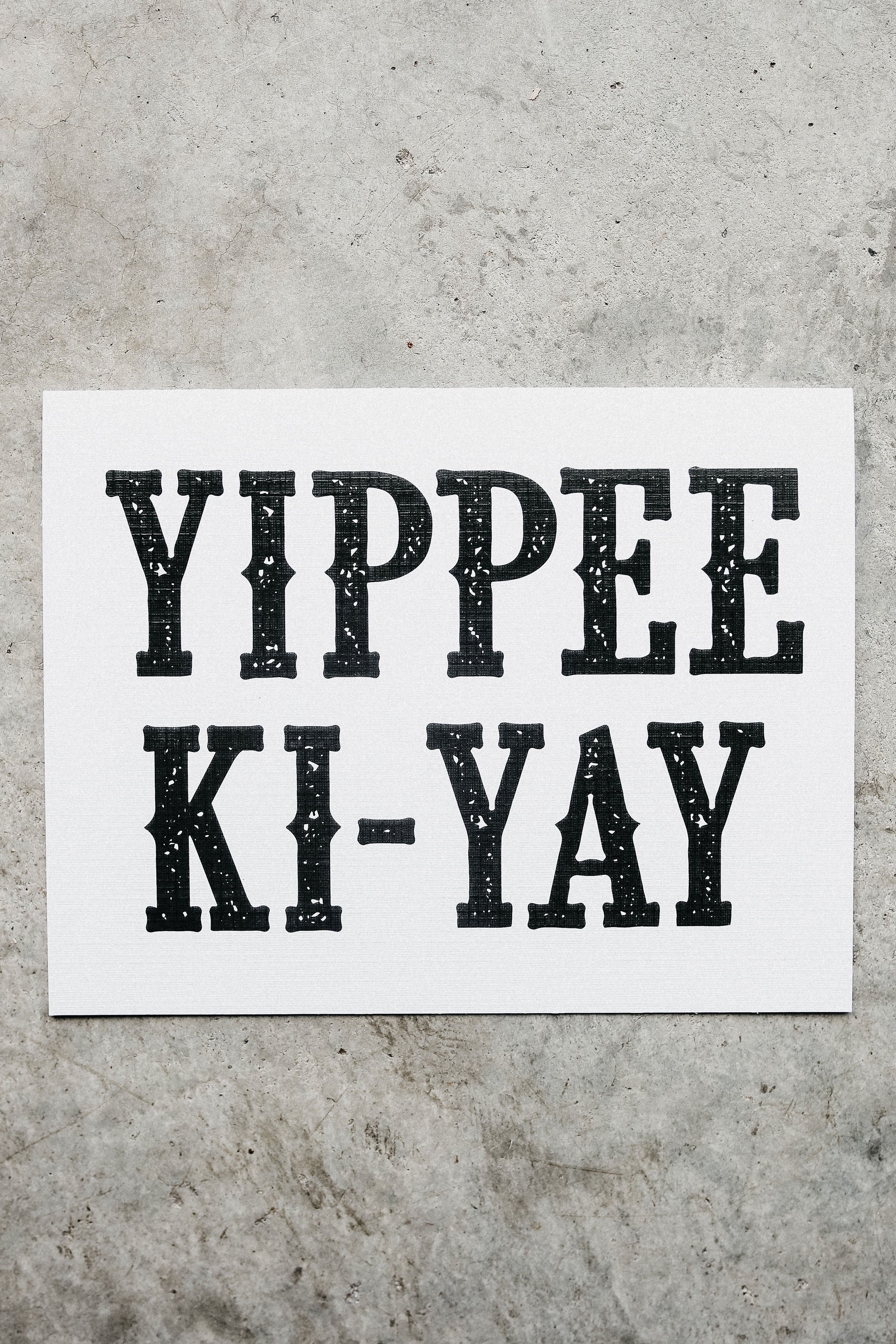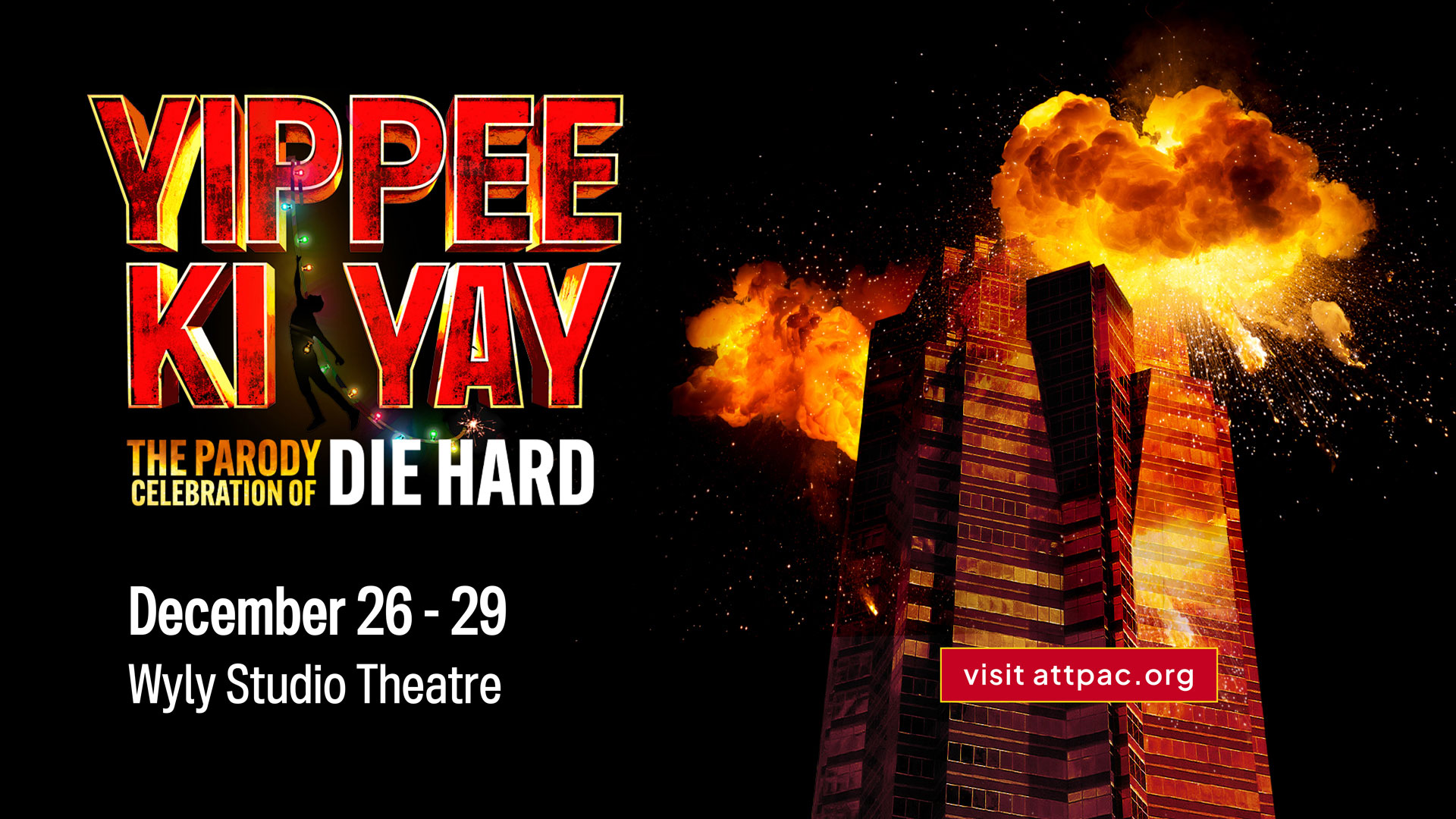The phrase "yippee ki yay" has become an iconic part of pop culture, thanks largely to its use in the Die Hard movie series. This simple yet memorable phrase has intrigued fans worldwide, prompting many to explore its origins, meaning, and significance. If you're curious about the translation and cultural impact of "yippee ki yay," you're in the right place. This article will delve into everything you need to know about this famous expression.
From its roots in Western folklore to its modern-day interpretations, "yippee ki yay" continues to captivate audiences. Whether you're a movie enthusiast, a language lover, or simply curious about the phrase's origins, this article will provide you with a detailed exploration of its meaning and applications.
In this guide, we'll explore the phrase's translation, cultural significance, and how it has evolved over time. Let's dive in and uncover the fascinating story behind "yippee ki yay traduction."
Read also:Famous Gabrielle The Rise To Stardom And Her Remarkable Journey
Table of Contents
- The Origin of "Yippee Ki Yay"
- Yippee Ki Yay Traduction: Understanding the Meaning
- Cultural Impact of "Yippee Ki Yay"
- The Role of Die Hard in Popularizing the Phrase
- Common Variations and Long-Tail Keywords
- Linguistic Analysis of the Phrase
- Historical Context and Evolution
- Modern Usage in Pop Culture
- Tips for Translating "Yippee Ki Yay"
- Conclusion and Final Thoughts
The Origin of "Yippee Ki Yay"
The phrase "yippee ki yay" has its roots in Western folklore, specifically in cowboy culture. It is believed to have originated as a playful exclamation used by cowboys to express excitement or celebration. Over time, the phrase gained popularity and became a staple in Western-themed movies and literature.
Although its exact origin is unclear, many linguists agree that "yippee ki yay" is a blend of English and Native American influences. The word "yippee" is thought to derive from the English word "yip," meaning a high-pitched shout of joy, while "ki yay" may have Native American origins, symbolizing a call to action or celebration.
Why Is the Phrase So Iconic?
The phrase's iconic status can be attributed to its catchy rhythm and universal appeal. Its use in popular culture has only enhanced its mystique, making it a favorite among fans of Western and action movies alike.
Yippee Ki Yay Traduction: Understanding the Meaning
When it comes to "yippee ki yay traduction," the phrase can be loosely translated to mean "hurray" or "hooray." While it lacks a direct translation in many languages, its meaning is generally understood as an expression of excitement or triumph.
In French, for example, the phrase might be translated as "youpi ki yeah," which captures the same sense of enthusiasm. Similarly, in Spanish, it could be rendered as "¡viva!" or "¡ole!" depending on the context.
Common Misconceptions About the Translation
One common misconception is that "yippee ki yay" has a deeper, more complex meaning. In reality, the phrase is more about its emotional impact than its literal translation. Its simplicity is what makes it so universally appealing.
Read also:Peewee Longway Real Name Unveiling The Life And Career Of A Rising Star
Cultural Impact of "Yippee Ki Yay"
The cultural impact of "yippee ki yay" cannot be overstated. The phrase has become a symbol of resilience, bravery, and determination, particularly in the context of action movies. Its association with the Die Hard series has cemented its place in popular culture, making it a go-to phrase for fans of the genre.
Moreover, the phrase's versatility allows it to be used in a variety of contexts, from casual conversation to formal settings. Its ability to evoke emotion and create a sense of camaraderie has made it a favorite among language enthusiasts and movie buffs alike.
How the Phrase Has Influenced Modern Language
Thanks to its widespread use in media, "yippee ki yay" has influenced modern language in significant ways. It has inspired countless parodies, memes, and even merchandise, further cementing its status as a cultural phenomenon.
The Role of Die Hard in Popularizing the Phrase
The Die Hard movie series, particularly the first film released in 1988, played a pivotal role in popularizing "yippee ki yay." In the film, actor Bruce Willis, playing the character John McClane, utters the phrase during a tense standoff with the villain. This iconic moment has been immortalized in pop culture, making the phrase synonymous with bravery and wit.
Die Hard's use of "yippee ki yay" not only elevated the phrase's status but also showcased its potential as a powerful tool for storytelling. Its inclusion in the film added depth to the character of John McClane, making him more relatable and endearing to audiences worldwide.
Other Movies and Media That Use the Phrase
While Die Hard is the most famous example of "yippee ki yay" in media, the phrase has also appeared in other movies, TV shows, and even video games. Its versatility and adaptability make it a favorite among creators looking to add a touch of excitement to their work.
Common Variations and Long-Tail Keywords
Over the years, "yippee ki yay" has inspired numerous variations and long-tail keywords. Some of the most common variations include:
- Yippee ki yay Christmas
- Yippee ki yay movie
- Yippee ki yay meaning
- Yippee ki yay translation
These variations reflect the phrase's versatility and its ability to adapt to different contexts and audiences. By exploring these variations, fans can gain a deeper understanding of the phrase's significance and applications.
Why Are Long-Tail Keywords Important?
Long-tail keywords are crucial for optimizing content for search engines. They help users find specific information related to their queries, making it easier for them to discover relevant content. In the case of "yippee ki yay traduction," long-tail keywords like "yippee ki yay meaning in French" or "yippee ki yay origin" can enhance the article's visibility and appeal to a broader audience.
Linguistic Analysis of the Phrase
From a linguistic perspective, "yippee ki yay" is a fascinating example of how language evolves over time. Its blend of English and Native American influences highlights the complexity and richness of language development. Additionally, its use in popular culture demonstrates how language can transcend cultural and linguistic barriers.
Linguists have long studied the phrase's structure and meaning, seeking to understand its appeal and significance. Their findings reveal that the phrase's simplicity and emotional resonance are key factors in its enduring popularity.
Breaking Down the Phrase
To better understand "yippee ki yay," let's break it down into its individual components:
- Yippee: A high-pitched shout of joy or excitement.
- Ki: A possible Native American influence, symbolizing a call to action or celebration.
- Yay: A short, enthusiastic exclamation similar to "hooray."
Historical Context and Evolution
The historical context of "yippee ki yay" is as fascinating as the phrase itself. Its origins in Western folklore and its evolution into a pop culture icon reflect the dynamic nature of language and culture. From its humble beginnings as a cowboy exclamation to its current status as a global phenomenon, the phrase has come a long way.
Understanding the historical context of "yippee ki yay" provides valuable insights into its cultural significance and enduring appeal. It serves as a reminder of the power of language to shape and influence society.
How the Phrase Has Changed Over Time
Over the years, "yippee ki yay" has undergone several transformations, adapting to changing cultural and linguistic landscapes. Its evolution from a simple exclamation to a complex symbol of resilience and determination highlights its versatility and adaptability.
Modern Usage in Pop Culture
In modern pop culture, "yippee ki yay" continues to thrive. Its use in movies, TV shows, and social media platforms has kept it relevant and engaging for new generations of fans. Whether it's used as a humorous quip or a serious declaration, the phrase remains a favorite among audiences worldwide.
Social media platforms like Twitter and TikTok have further popularized "yippee ki yay," with users creating viral videos and memes featuring the phrase. This widespread adoption has helped the phrase reach new heights of popularity, ensuring its place in the cultural lexicon for years to come.
Examples of Modern Usage
Here are some examples of how "yippee ki yay" is used in modern pop culture:
- As a hashtag on social media platforms
- In memes and viral videos
- In merchandise and marketing campaigns
Tips for Translating "Yippee Ki Yay"
Translating "yippee ki yay" into other languages can be challenging, but with the right approach, it can be done effectively. Here are some tips to help you translate the phrase accurately and meaningfully:
- Focus on capturing the emotional essence of the phrase rather than its literal meaning.
- Use culturally relevant expressions that convey the same sense of excitement and triumph.
- Consult native speakers or language experts to ensure the translation is accurate and appropriate.
By following these tips, you can create translations that resonate with audiences in different languages and cultures.
Conclusion and Final Thoughts
In conclusion, "yippee ki yay traduction" is more than just a phrase; it's a cultural phenomenon that continues to captivate audiences worldwide. Its origins, meaning, and cultural significance make it a fascinating subject of study and exploration. Whether you're a fan of Westerns, action movies, or language, "yippee ki yay" offers something for everyone.
We invite you to share your thoughts and experiences with "yippee ki yay" in the comments section below. Have you used the phrase in your own life? What does it mean to you? Your feedback and insights can help enrich the conversation and deepen our understanding of this iconic expression.
Thank you for reading, and don't forget to explore our other articles for more fascinating insights into language, culture, and beyond. Happy translating, and remember: "yippee ki yay!"


